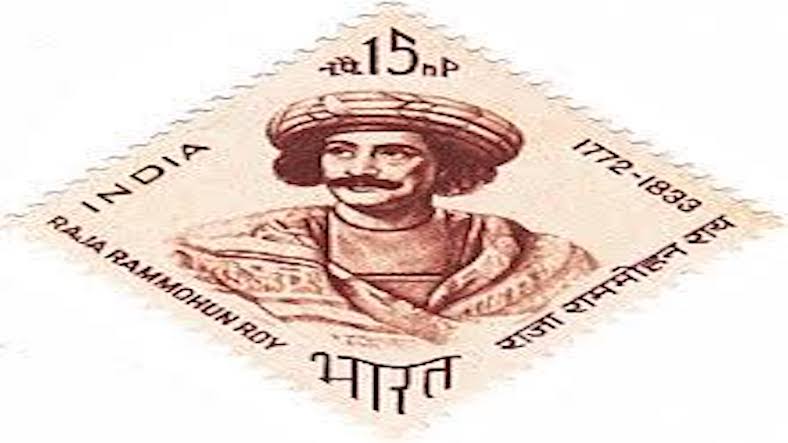Ram Mohan Roy (1772-1833) was a prominent Indian social reformer, thinker and scholar who played a pivotal role in advocating for social, religious and educational reforms in 19th-century India. He is often referred to as the "Father of the Indian Renaissance" for his efforts to modernize Indian society and bring about progressive changes.
Here are some key aspects of Ram Mohan Roy's life and contributions:
- Early Life and Education: Ram Mohan Roy was born on May 22, 1772, in Radhanagar, Bengal Presidency (now in West Bengal, India). He received a diverse education, including studies in Sanskrit, Persian, Arabic, English and various religious texts.
- Opposition to Sati: Ram Mohan Roy is best known for his campaign against the practice of sati (widow immolation), which involved the burning of a widow on her husband's funeral pyre. He vehemently criticized this practice and worked to raise awareness about its harmful effects on women's rights and dignity.
- Founding of Brahmo Samaj: Ram Mohan Roy was a key figure in the establishment of the Brahmo Samaj, a socio-religious reform movement aimed at promoting monotheism, rationalism and the rejection of idol worship. The movement sought to modernize Hinduism and advocate for social and religious reforms.
- Advocacy for Education: Roy recognized the importance of education for societal progress. He emphasized the need for modern education and founded the Anglo-Hindu School in Calcutta (now Kolkata) to provide Western-style education to Indian students.
- Religious Reforms: While promoting rationalism and monotheism, Roy advocated for a universal religion based on reason and ethical principles. He sought to bridge the gap between different religious traditions and promote harmony.
- Social and Cultural Reforms: Ram Mohan Roy worked towards abolishing social practices that he considered regressive, such as child marriage and the purdah system. He also advocated for the rights of women and the improvement of their social status.
- Literary Contributions: Roy was a prolific writer and scholar. He translated important texts like the Vedas and Upanishads into English to make them accessible to a wider audience. He also wrote essays and pamphlets advocating his reformist ideas.
- Contributions to Political Thought: Roy's ideas had an impact on political thought in India. He believed in constitutional monarchy and the rule of law. He sought to promote a balance between Indian traditions and progressive ideas from the West.
Ram Mohan Roy's efforts laid the foundation for a broader social and intellectual awakening in India. His advocacy for human rights, social justice and the pursuit of knowledge significantly contributed to the social reform movements that followed. His legacy continues to inspire individuals who work towards positive change and societal progress in India and beyond.
Thanks for reading the about this great personality on our peoples blog, for more such great people read our peoples blog articles.










